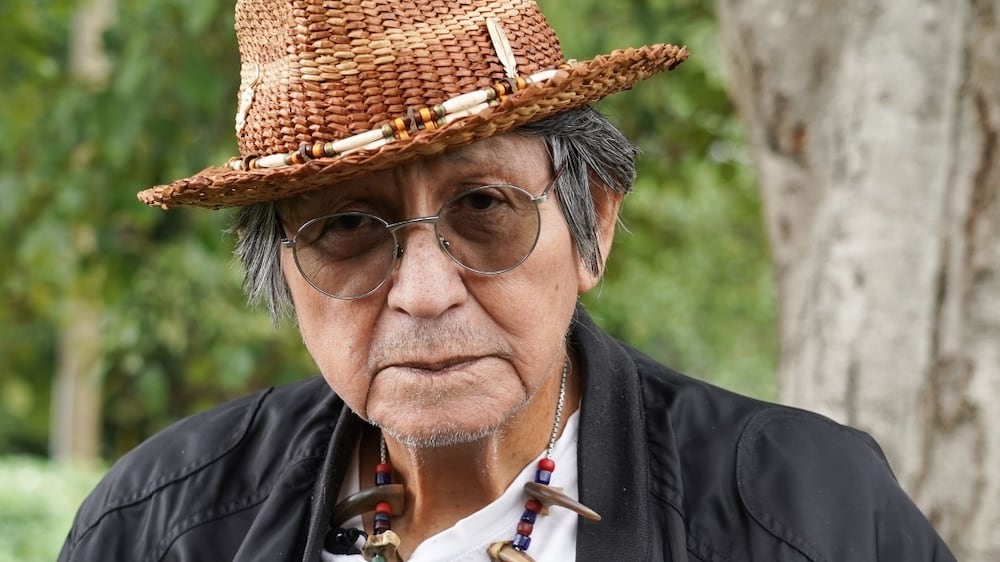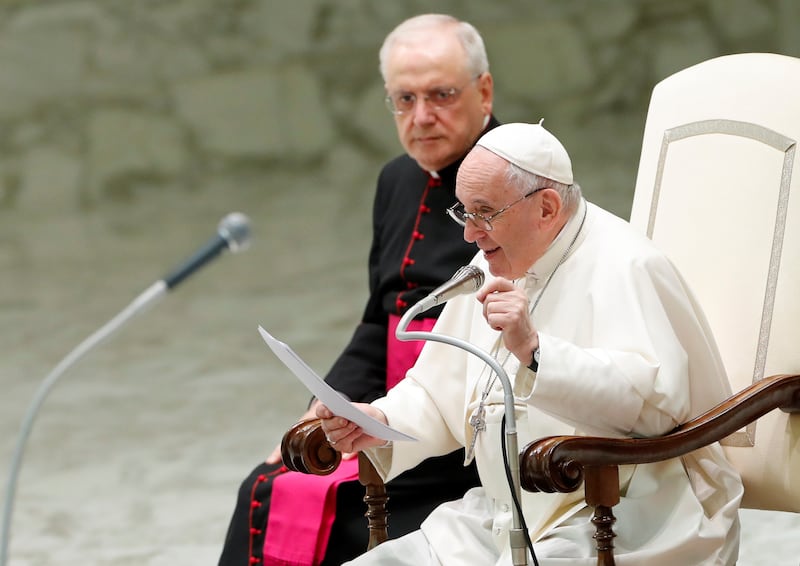Pope Francis will visit Canada as the Catholic Church seeks to rebuild bridges with the indigenous community following the shocking abuse scandal at church-run residential schools, the Vatican said on Wednesday.
"The Canadian Conference of Catholic Bishops has invited the Holy Father to make an apostolic journey to Canada, also in the context of the long-standing pastoral process of reconciliation with indigenous peoples," it said.
"His Holiness has indicated his willingness to visit the country on a date to be settled in due course."
The Catholic Church in Canada in September apologised "unequivocally" to Canada's indigenous peoples for a century of abuses at church-run residential schools set up by the government under a policy of assimilation.
The Pope had already agreed to meet in December with indigenous survivors of Canada’s notorious residential schools amid calls for a papal apology for the Catholic Church’s role.
At that time, the bishops conference said the pontiff had invited the delegations to the Vatican and would meet separately with three groups — First Nations, Metis and Inuit — during their December 17-20 visit. The Pope will then preside over a final audience with all three groups December 20, the bishops group said.
It was not immediately clear if that Vatican meeting would go forward or if a papal pilgrimage might preclude it.
The move followed the discovery of more than 1,200 unmarked graves at three sites where indigenous children were forced to attend the schools. The discoveries revived calls, including from Canadian Prime Minister Justin Trudeau, for the Pope to make a formal apology.
The pontiff has expressed his "pain" at the scandal but has not gone so far as to offer the apology that indigenous leaders are still calling for.
Indigenous Canadians were wary following the announcement.
Angela White, executive director of the Indian Residential School Survivors Society, questioned the sincerity of the Pope’s decision.
“It felt like they were being shamed or peer pressured into that one action,” she said.
Ms White added that too much has transpired for a simple apology and that any visit must be backed up with real, meaningful change.
“Apologies are not going to cut it anymore. If you're going to come and just say, 'We're sorry this has happened', sprinkled with some of the right words that, you know, get us to that next stage, then make sure that there's a real plan behind it as to how that reconciliation can be initiated,” she told The National.
Assembly of First Nations National Chief RoseAnne Archibald called on the Catholic Church to return diocese land and invest in long-term healing and support programmes for indigenous people.
She also demanded the church replace the 1493 Doctrine of Discovery with a new charter decreeing that indigenous people must be treated with dignity and respect.
“I’ll welcome Pope Francis when he arrives on Turtle Island to issue a long overdue apology to survivors and intergenerational trauma survivors," Ms Archibald said.
"The Catholic Church must be accountable and acknowledge their responsibility for implementing and running these institutions of assimilation and genocide."
The Tk̓emlúps te Secwépemc First Nation, where more than 200 unmarked graves were discovered in May, said it would "welcome" the Pope on its tribal lands in British Columbia.
In a statement, the tribe said: "there has never been an apology from the highest level of the Roman Catholic Church. For the 'truth' component of Truth and Reconciliation, there has to be an acknowledgment of the true role of the Catholic Church in the deaths of children placed in their care."
Some 150,000 Indian, Metis and Inuit children were enrolled from the late 1800s to the 1990s in 139 residential schools across Canada, spending months or years separated from their families.
Many were physically and sexually abused by headmasters and teachers, and thousands are believed to have died of disease, malnutrition or neglect.
Today, while searches continue for more grave sites, those experiences are blamed for a high incidence of poverty, alcoholism and domestic violence, as well as high suicide rates in indigenous communities.
Agencies contributed to this report
Indigenous Canadians still grapple with discovery of unmarked graves three months on








